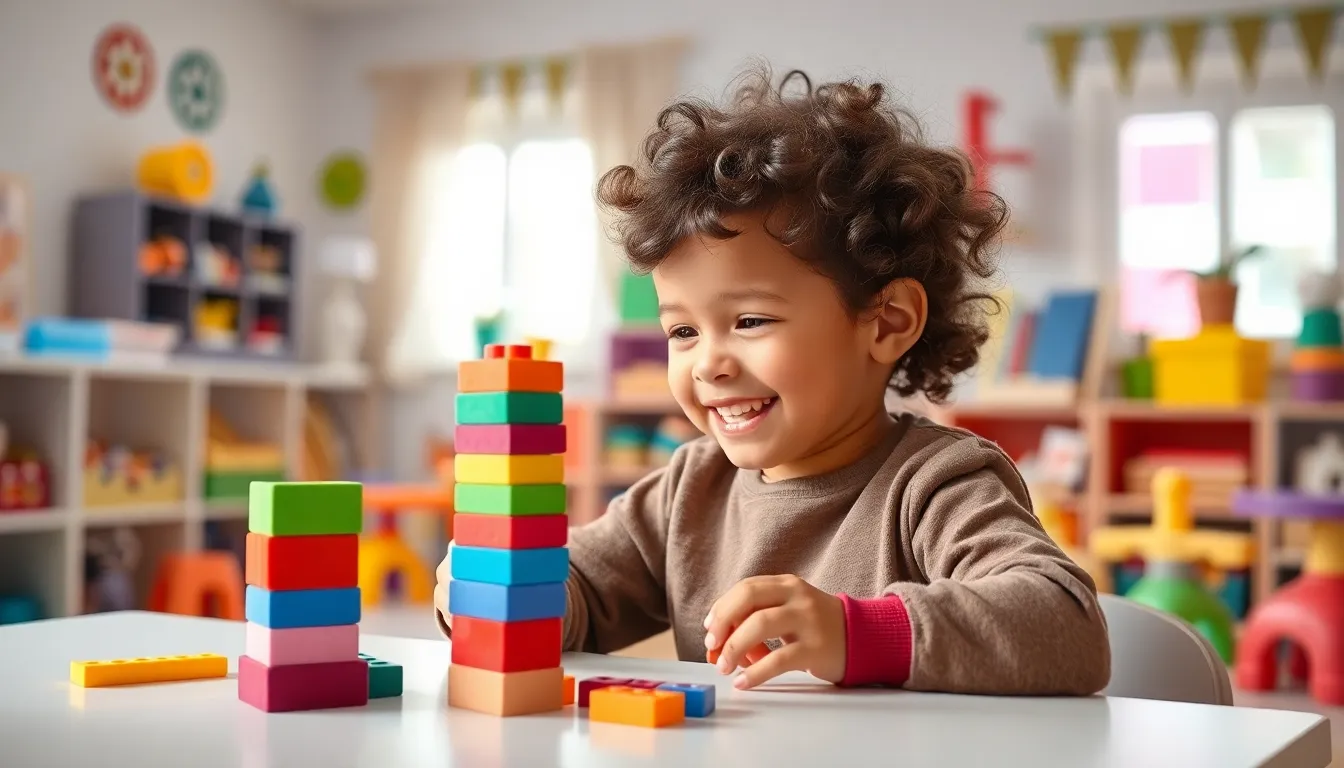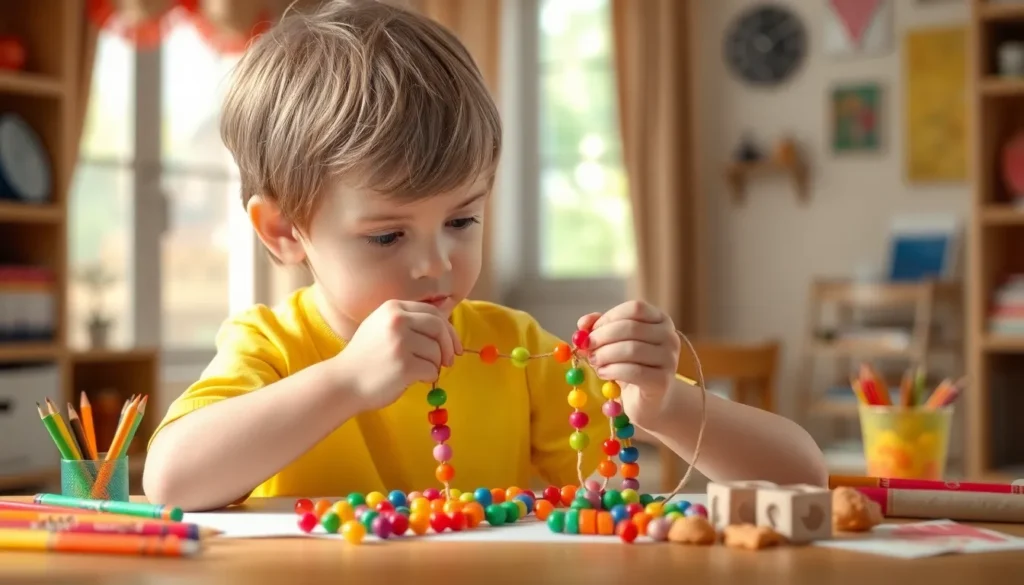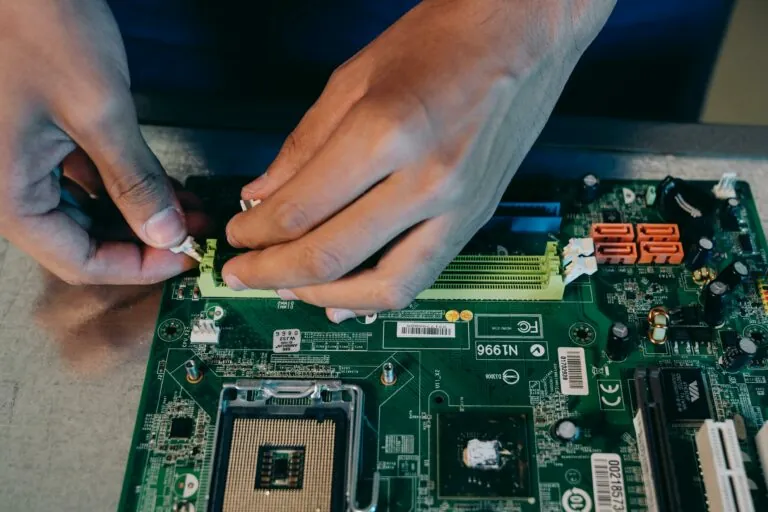Fine motor skills might sound like a fancy term straight out of a science lab, but they’re the unsung heroes of everyday life. Whether it’s tying shoelaces, buttoning shirts, or mastering the art of the perfect avocado toast, these skills are crucial for navigating the world with finesse. Imagine trying to eat spaghetti with chopsticks—now that’s a recipe for disaster!
In a world where multitasking is the name of the game, fine motor skills play a starring role. They help kids develop independence and confidence while adults juggle work, hobbies, and the occasional DIY project. So, let’s dive into the delightful world of fine motor skills and discover how they shape our daily lives, one tiny movement at a time.
Table of Contents
ToggleUnderstanding Fine Motor Skills
Fine motor skills involve the coordination of small muscles in the hands and fingers, essential for completing precise movements. These skills are foundational for independence and confidence in tasks across all ages.
Definition and Importance
Fine motor skills encompass a range of movements that require hand-eye coordination and dexterity. They facilitate activities such as writing, drawing, and using utensils. The development of these skills is crucial during childhood, influencing educational success and everyday functioning. Mastery of fine motor skills enhances self-esteem. It also allows for increased participation in social settings. In adults, refined skills remain vital for managing tasks at work and home.
Types of Fine Motor Skills
Various types of fine motor skills exist, each critical for different activities. Grasp and hold skills allow individuals to safely manipulate objects. Manipulative skills enable actions like buttoning clothing or using scissors. In-hand manipulation involves moving objects within the hand without dropping them, essential for activities like picking up coins. Bilateral coordination refers to the use of both hands together, crucial for tasks like tying shoelaces. Each skill contributes to a specific aspect of fine motor development.
Development of Fine Motor Skills

The development of fine motor skills unfolds in progressive stages, significantly impacting a child’s independence and confidence.
Stages of Development
Infants begin developing fine motor skills through reflexive actions, grasping objects and exploring textures. As toddlers grow, they transition to more intentional movements, like stacking blocks or using utensils. Preschoolers refine these abilities, engaging in activities such as drawing shapes or cutting with scissors. By age six, children demonstrate enhanced dexterity, allowing them to write letters and perform intricate tasks. Each stage builds upon the last, establishing a solid foundation for complex interactions and educational success.
Factors Influencing Development
A variety of factors influence the development of fine motor skills. Environmental stimuli, such as available toys and tools, shape the opportunities children have to practice these skills. Parental involvement also plays a crucial role; hands-on activities encourage exploration and skill refinement. Additionally, individual factors like genetic predisposition and sensory experiences affect a child’s progress. Overall, social interactions, including playdates and group activities, provide essential practice, fostering cooperative skills and enhancing dexterity in everyday tasks.
Activities to Enhance Fine Motor Skills
Engaging in activities that enhance fine motor skills is essential for both children and adults. A variety of fun and accessible tasks can improve dexterity and coordination.
Fun At-Home Activities
Playing with playdough fosters creativity while strengthening hand muscles. Coloring with crayons or markers encourages grip and control, aiding in hand-eye coordination. Puzzles demand precise hand movements, promoting problem-solving and concentration. Stringing beads onto a shoelace or thread hones manipulation skills, invaluable for daily tasks. Building with blocks or Lego supports bilateral coordination and spatial awareness.
Educational Tools and Resources
Utilizing scissors during crafting activities enhances grip strength and coordination. Tracking apps or games designed for fine motor skill development can provide structured practice. Teaching kids to use tongs or tweezers during play increases dexterity and precision. Educational kits focused on tasks like sewing or painting serve to refine these skills in a fun context. Incorporating manipulatives like fidget spinners or stress balls helps develop hand strength and coordination discreetly.
Challenges and Disorders Related to Fine Motor Skills
Challenges in fine motor skills can significantly affect various age groups. Children often experience difficulties with tasks requiring precise hand movements, while adults may struggle with daily responsibilities.
Common Issues
Common issues with fine motor skills include difficulty with gripping objects, manipulating small items, and completing intricate tasks. These problems often manifest as clumsiness or delays in achieving milestones. Conditions like developmental coordination disorder (DCD), also known as dyspraxia, can hinder children’s ability to perform tasks such as tying shoes or holding a pencil. Dyspraxia affects approximately 5% of school-aged children. Conditions like arthritis or neurological disorders can impact adults, limiting their dexterity and causing discomfort.
Impact on Daily Life
The impact of poor fine motor skills on daily life can be profound. Struggles with basic tasks often lead to frustration and decreased confidence. Children may face challenges in academic settings, hindering their writing abilities and participation in group activities. Adults may find difficulties in their professional lives, affecting productivity and task completion. Additionally, social interactions may suffer as individuals feel self-conscious about their ability to perform routine tasks. Overall, these challenges can limit independence and affect quality of life.
Fine motor skills are vital for accomplishing everyday tasks and enhancing overall quality of life. They not only support independence and confidence in children but also play a crucial role in adults’ ability to navigate their responsibilities. Engaging in activities that promote the development and refinement of these skills can lead to significant improvements in dexterity and coordination.
Addressing challenges related to fine motor skills is essential for fostering self-esteem and ensuring success in various settings. By understanding the importance of these skills and incorporating enjoyable practices into daily routines, individuals can enhance their fine motor abilities, leading to more fulfilling experiences in both personal and professional spheres.



